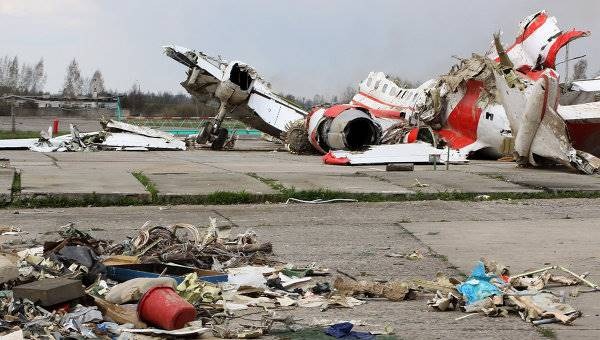At the seventh anniversary of the air crash on 10 April 2010 when a Polish plane crashed outside Smolensk in Russia, killing the Polish president, his wife and 94 other people, endeavors to reinvestigate the tragedy are still inadequate and divided. No independent and credible investigation of the air crash has taken place since then. The Polish authorities have renewed the investigation of the tragedy but without sufficient involvement of international experts. The Brussels Times has been told that international experts will be absent at a press conference in Warsaw today as “we cannot relate to work in which we have not taken part.”
The official air accident investigations by the Russian and Polish authorities have been criticized for a number of shortcomings and unanswered questions. A large part of the Polish population doubts their conclusions. Such a climate leaves room for speculation.
A European team of experts headed by the British air accident investigator Frank Taylor are unanimous in their view that a new investigation of the Smolensk crash must take place and that Russia’s conduct in the investigation published in January 2011 is of grave concern.
The independence of the Russian investigation has also been questioned by the European Parliament.
In a joint resolution from March 2015 on the state of democracy in Russia - supported by all major political party groups - the parliament underlined “the fact that the level of dependence of the Russian judiciary on the authorities undermines any impartial and honest investigation”.
The European Parliament called “on the Russian authorities to immediately return the wreckage of the Tu-154 Polish Government aeroplane and all of its black boxes to Poland” and demanded an “international and independent investigation into the causes of the crash of the Tu-154 Polish Government aeroplane.”
An international review of the investigations of the Smolensk air crash, as to whether they were conducted according to international standards, was expected following the election of a new Polish government in October 2015.
Indeed, the new government launched new investigations by the Ministry of Defense and the Military Prosecutor’s Office. The Ministry of Defense has not yet appointed any international experts whereas the Prosecutor’s Office has. The two authorities seem to be competing against one another instead of combining their efforts.
The Brussels Times has learned that since Frank Taylor began working on the case in September of last year, his role has been limited and his European team remains unappointed. Nor has he seen any evidence or work in progress by the Polish side. He therefore felt obliged to decline an invitation to participate in the press conference in Warsaw today.
Following an appeal to Prime Minister Beata Szydło, Frank Taylor recently received a communication from the Polish Ministry of Defense signaling its intention to bring-in the European air accident investigators with immediate effect.
While this is considered a welcomed development, “until it is certain that all evidence in Poland will be made available to the European team no formal agreement concerning its appointment is likely to be reached,” says the British air crash expert.
The Polish plane crashed on 10 April 2010 on its route to commemorate the 70th anniversary of the Katyn massacre of Polish officers by the Soviet secret police during the Second World War. The grandson of a senior Polish army officer who was executed at the massacre in 1940 told The Brussels Times that he is working to ensure a reliable investigation and prompt international cooperation.
“Until essential reforms are implemented, the Polish government is in no position to counter and subdue widespread criticism of its unqualified effort,” he said. “Worse still, Russia and well-organized detractors have been presented with legitimate grounds for denigrating the credibility of the Polish investigation.”
M. Apelblat
The Brussels Times

